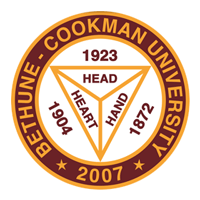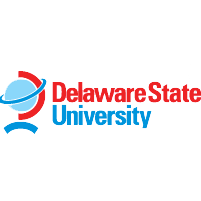Here is this week’s news of grants or gifts to historically Black colleges and universities or for programs of particular interest to African Americans in higher education.
 The University of the District of Columbia has received a $4.8 million grant from the National Science Foundation to establish a Center for Nanotechnology Research and Education. The center will utilize the UDC faculty’s core expertise in nanotechnology to conduct research in areas such as nanoscale electronics for next-generation computers, metal additive manufacturing, and nanomaterials-based energy systems. The main goal of the new center is to attract and train diverse students who will become a part of the nation’s science and engineering workforce.
The University of the District of Columbia has received a $4.8 million grant from the National Science Foundation to establish a Center for Nanotechnology Research and Education. The center will utilize the UDC faculty’s core expertise in nanotechnology to conduct research in areas such as nanoscale electronics for next-generation computers, metal additive manufacturing, and nanomaterials-based energy systems. The main goal of the new center is to attract and train diverse students who will become a part of the nation’s science and engineering workforce.
 Central State University in Wilberforce, Ohio has received $7.1 million in gifts that will fund various construction projects across the university’s campus. The donations will support the construction of a new wellness center, a student success center, and a new dining option for students. Additionally, renovations will be made to the university’s athletics fields.
Central State University in Wilberforce, Ohio has received $7.1 million in gifts that will fund various construction projects across the university’s campus. The donations will support the construction of a new wellness center, a student success center, and a new dining option for students. Additionally, renovations will be made to the university’s athletics fields.
 Rice University, historically Black Texas Southern University, and the University of Houston have received a $2.66 million grant from the National Science Foundation to help increase the number of underrepresented minorities pursuing academic careers in engineering and science. The project, “Alliances for Graduate Education and the Professoriate,” is specifically aimed at students enrolled in data engineering and data science disciplines. The funds will create opportunities for students and faculty to engage with each other across the three participating campuses, provide faculty with mentoring guidance, and establish training programs that will prepare future faculty members to lead research teams and centers, as well as further the impacts of their research through entrepreneurship.
Rice University, historically Black Texas Southern University, and the University of Houston have received a $2.66 million grant from the National Science Foundation to help increase the number of underrepresented minorities pursuing academic careers in engineering and science. The project, “Alliances for Graduate Education and the Professoriate,” is specifically aimed at students enrolled in data engineering and data science disciplines. The funds will create opportunities for students and faculty to engage with each other across the three participating campuses, provide faculty with mentoring guidance, and establish training programs that will prepare future faculty members to lead research teams and centers, as well as further the impacts of their research through entrepreneurship.
 Bethune-Cookman University and Florida A&M University, both historically Black educational institutions, have received a $999,702 grant to conduct research aimed at improving coastal water quality. Students and faculty at both historically Black universities will investigate oyster-associated bacteria, which have the potential to remove nitrogen from estuarine waters. Excessive nitrogen can act as a fertilizer and exacerbate undesirable harmful algal blooms in coastal waters. Students involved with this research will be provided with research opportunities and educational training in the fields of molecular biology and bioinformatics.
Bethune-Cookman University and Florida A&M University, both historically Black educational institutions, have received a $999,702 grant to conduct research aimed at improving coastal water quality. Students and faculty at both historically Black universities will investigate oyster-associated bacteria, which have the potential to remove nitrogen from estuarine waters. Excessive nitrogen can act as a fertilizer and exacerbate undesirable harmful algal blooms in coastal waters. Students involved with this research will be provided with research opportunities and educational training in the fields of molecular biology and bioinformatics.
 A researcher at the University of Alabama Birmingham has received a $400,000 grant from the National Institutes of Health to reduce the risk of Alzheimer’s disease and dementia in African Americans. Previous research has shown that African Americans are more than twice as likely than other populations to be diagnosed with cognitive aging conditions. The team at UAB will develop educational information that encourages healthy behaviors among African Americans that will hopefully lessen their risk of developing these disorders.
A researcher at the University of Alabama Birmingham has received a $400,000 grant from the National Institutes of Health to reduce the risk of Alzheimer’s disease and dementia in African Americans. Previous research has shown that African Americans are more than twice as likely than other populations to be diagnosed with cognitive aging conditions. The team at UAB will develop educational information that encourages healthy behaviors among African Americans that will hopefully lessen their risk of developing these disorders.
 Morgan State University in Baltimore has received a $150,000 federal grant from the National Science Foundation’s Historically Black College and Universities-Undergraduate Program. The new funds will be used to create a one-year pilot program that will help increase student proficiency and success in programming skills with the goal of retaining these students as computer science majors.
Morgan State University in Baltimore has received a $150,000 federal grant from the National Science Foundation’s Historically Black College and Universities-Undergraduate Program. The new funds will be used to create a one-year pilot program that will help increase student proficiency and success in programming skills with the goal of retaining these students as computer science majors.
 Historically Black Delaware State University has received a $946,372 grant from the National Science Foundation to study the use of plasma as a medium for laser amplification. While the maximum achievable output power and intensity of lasers using solid-state materials are eventually limited by the damage of the material under high laser intensities, plasma is a more promising alternative method. The funds will also provide training and research opportunities for university students in the fields of laser-plasma research, modern clustered computing, and other experimental techniques in lasers and optics.
Historically Black Delaware State University has received a $946,372 grant from the National Science Foundation to study the use of plasma as a medium for laser amplification. While the maximum achievable output power and intensity of lasers using solid-state materials are eventually limited by the damage of the material under high laser intensities, plasma is a more promising alternative method. The funds will also provide training and research opportunities for university students in the fields of laser-plasma research, modern clustered computing, and other experimental techniques in lasers and optics.












